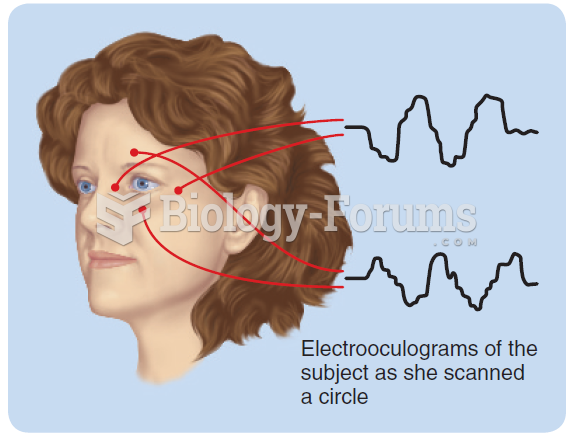|
|
|
In the ancient and medieval periods, dysentery killed about ? of all babies before they reach 12 months of age. The disease was transferred through contaminated drinking water, because there was no way to adequately dispose of sewage, which contaminated the water.
On average, someone in the United States has a stroke about every 40 seconds. This is about 795,000 people per year.
Methicillin-resistant Staphylococcus aureus or MRSA was discovered in 1961 in the United Kingdom. It if often referred to as a superbug. MRSA infections cause more deaths in the United States every year than AIDS.
Warfarin was developed as a consequence of the study of a strange bleeding disorder that suddenly occurred in cattle on the northern prairies of the United States in the early 1900s.
Bacteria have flourished on the earth for over three billion years. They were the first life forms on the planet.
 Children with Down syndrome have a small head, short, thick neck, flattened face, and a distinctive ...
Children with Down syndrome have a small head, short, thick neck, flattened face, and a distinctive ...
 Operation of a typical pulse generator (pickup coil). At the bottom is a line drawing of a typical ...
Operation of a typical pulse generator (pickup coil). At the bottom is a line drawing of a typical ...
 The typical placement of electrodes around the eye for electrooculography. The two electrooculogram ...
The typical placement of electrodes around the eye for electrooculography. The two electrooculogram ...





